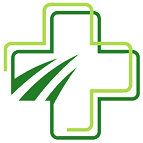Sudden onset cough in adults can be a perplexing symptom with various underlying causes. As healthcare professionals, it’s crucial to identify and differentiate these causes to provide optimal care. This blog explores some of the most common causes, aiding practitioners in diagnosing and managing this common complaint effectively. Please note that this is not a comprehensive list.
1. Infections
Respiratory Infections: Viral or bacterial infections such as the common cold, influenza, and bronchitis can lead to a sudden cough. These are often accompanied by symptoms like fever, sore throat, and nasal congestion.
Pneumonia: Both bacterial and viral pneumonias can cause a severe, persistent cough. For detailed insights into fungal pneumonia, its symptoms, and treatments, refer to this Practitioner Development UK article.
Tuberculosis (TB): TB, caused by Mycobacterium tuberculosis, presents with a persistent cough lasting more than three weeks, weight loss, night sweats, and fever. Early detection and treatment are critical to managing TB.
2. Asthma
Asthma can develop suddenly in adults, especially after respiratory infections or exposure to allergens. Symptoms include wheezing, shortness of breath, and chest tightness. It’s important to consider asthma in patients presenting with a new, persistent cough.
3. Gastroesophageal Reflux Disease (GERD)
GERD can cause a chronic cough due to the irritation of the oesophagus and airways by stomach acid. This cough often worsens at night or after meals and may be accompanied by heartburn or a sour taste in the mouth.
4. Medications
Certain medications, particularly ACE inhibitors used for hypertension, can cause a dry, persistent cough as a side effect. It’s important to review the patient’s medication history when diagnosing a sudden onset cough.
5. Lung Cancer
Lung cancer should be considered, especially in patients with risk factors such as smoking history. Symptoms may include a persistent cough, coughing up blood, weight loss, and shortness of breath. Early detection is critical for effective treatment.
6. Environmental Factors
Exposure to irritants such as smoke, pollution, and allergens can trigger a sudden cough. Assessing the patient’s environment and recent exposures can help identify these triggers.
7. Psychogenic Cough
A psychogenic or habit cough is a diagnosis of exclusion, often seen in individuals with anxiety or other psychological conditions. This type of cough tends to persist despite treatment of other potential causes and may worsen in stressful situations.
8. Heart Failure
Heart failure can cause a cough due to fluid accumulation in the lungs. This cough may be accompanied by other symptoms like shortness of breath, swelling in the legs, and fatigue.
9. Pulmonary Embolism
A sudden cough can be a symptom of a pulmonary embolism, a potentially life-threatening condition where a blood clot lodges in the lungs. Pulmonary embolisms are most likely to occur after long periods of immobility, surgery, or in individuals with certain medical conditions such as deep vein thrombosis. Symptoms may include sudden shortness of breath, chest pain, and coughing up blood.
Explore the complexities of fungal pneumonia, a significant but often overlooked cause of cough, in the Practitioner Development UK article About Fungal Pneumonia. This resource provides valuable insights for healthcare professionals on recognizing and treating this serious condition.
References
British Thoracic Society (2019). Guidelines for the Management of Cough in Adults. London: BTS.
National Institute for Health and Care Excellence (NICE) (2020). Chronic Cough in Adults: Assessment and Management. NICE guideline [NG199]. London: NICE.


